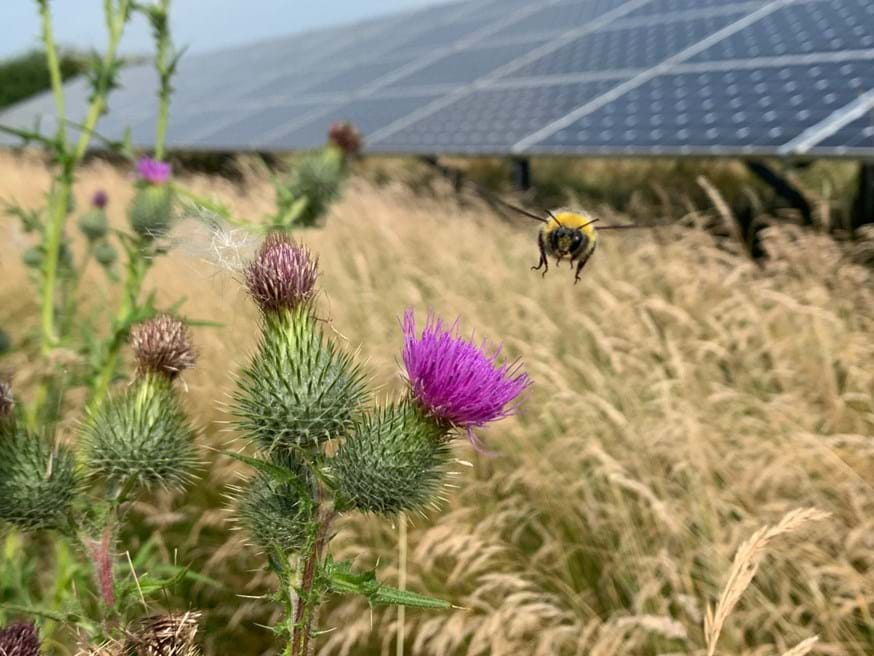Understanding the economic value of biodiversity
 © Hollie Blaydes
© Hollie Blaydes
Lancaster University experts are working with the UK Centre for Ecology & Hydrology (UKCEH) on a project that will help us to understand how biodiversity underpins our economy and to assess its economic value.
Biodiversity supports everything in nature that we need to survive, from food to clean water. From plants, animals and insects to fungi and bacteria, biodiversity creates the intricate ecosystems we rely on. Although the UK has more than 70,000 species of animals, plants, fungi and micro-organisms, research has shown that we are also one of the world’s most nature depleted countries.
The ‘Trustworthy and Accountable Decision-Support Networks for Biodiversity – A Virtual Labs based Approach’ project, led by Professor Gordon Blair of UKCEH and Lancaster University’s School of Computing and Communications, will receive £794,402 to investigate whether ‘virtual labs’ coupled with decision-support frameworks, can help us understand the complex interactions needed to support informed policy development and organisational decision-making.
The decision-support framework will draw on ideas from environmental accounting, ecosystem services and natural capital, and systems thinking approaches more generally.
The project brings together a team of Lancaster University from a range of fields, including Professor Jan Bebbington, Director of the Pentland Centre at Lancaster University, who brings expertise in environmental accounting and decision support frameworks in organisational settings. Dr Alona Armstrong, Director of Energy Lancaster, is responsible for a renewable energy case study and is an expert in renewable energy-environment interactions, industry and policy insight. Dr Bran Knowles, of Lancaster University’s School of Computing and Communications, brings expertise in socio-technical design.
Their overall aims are to:
- Determine the best approaches to support good decision-making around biodiversity
- Test those ideas within a virtual lab forum
- Design a decision-making framework to enhance accountability and trustworthiness
The project is one of seven major new studies, which represent a £6.4 million investment by UK Research and Innovation, that will enable us to better manage our natural environment by directing investment to restore and conserve this vital natural resource. They will help to deliver the recommendations made by the UK Government’s Dasgupta Review, which called for changes in how we think, act and measure economic success to protect and enhance our prosperity and the natural world.
The seven projects form a major part of UKRI’s Economics of Biodiversity programme.
The funding has been provided by UKRI’s Natural Environment Research Council (NERC) and Economic and Social Research Council (ESRC).
Professor Sir Duncan Wingham, Executive Chair of NERC, said: “The Economics of Biodiversity programme will help us protect our natural environment and earth’s carefully balanced ecosystems. It will build our understanding of how biodiversity is valued, increase investment and improve management of this vital natural resource.
“As our governments work to tackle climate change and biodiversity loss at COP27 and CBD COP15 conferences, this investment shows UKRI’s commitment to environmental science, building our knowledge and supporting sustainable economic growth and public wellbeing.”
Professor Gordon Blair said: “The exciting thing about this project is that we are applying a systems-thinking approach to decision-making around land-use and biodiversity. This will be supported by virtual labs, a technology that can both bring together disparate data sets and, more importantly, people from a variety of disciplinary perspectives to enable truly transdisciplinary decision-making.”
Dr Armstrong said: “This project is a fantastic opportunity to assess the impacts of land use change for energy, which is only set to increase in order to meet net zero, on biodiversity and importantly how impacts can be incorporated into decisions.”
Professor Jan Bebbington said: “A key novel element of this project is to bring the voices of land managers into a broader framework of understanding how land will be used in the future. Land manager choices will be critical for delivering climate and biodiversity outcomes.”
The project will be delivered in collaboration with the University of York.
Back to News
